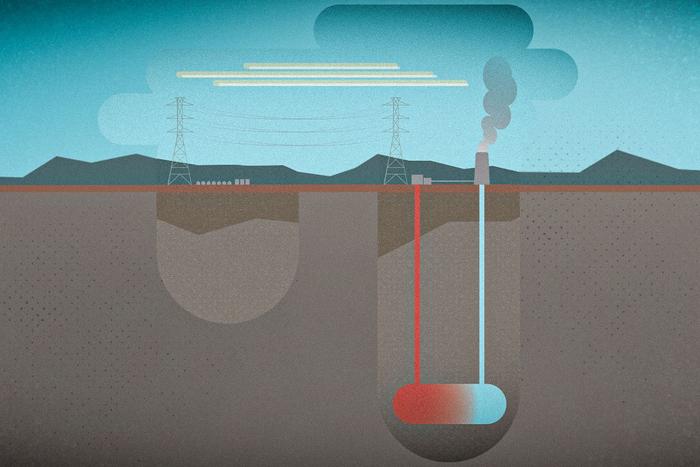West Virginia University will lead a $1 million National Science Foundation funded effort to drive energy technology and infrastructure, as well as address issues involving decarbonization and grid resiliency, throughout the West Virginia-southwestern Pennsylvania region.

Credit: WVU Illustration/Graham Curry
West Virginia University will lead a $1 million National Science Foundation funded effort to drive energy technology and infrastructure, as well as address issues involving decarbonization and grid resiliency, throughout the West Virginia-southwestern Pennsylvania region.
The Resilient Energy Technology and Infrastructure team, spearheaded by Erienne Olesh, executive director at the WVU Office of Student and Faculty Innovation, and Sheena Murphy, associate vice president for research development at the WVU Research Office, includes WVU, Carnegie Mellon University, the University of Pittsburgh and a host of regional nonprofits, industry stakeholders and government entities.
The initiative aims to identify pathways for workforce development that align with energy technologies and policy development that accelerates adoption of those technologies.
The NSF announced the award to WVU as part of its Regional Innovation Engines program. The program is designed to support the development of diverse regional coalitions to create innovation-driven solutions with economic and societal impact.
“As a historic energy producing region, this area is already primed to be the epicenter of the energy transition,” Olesh said. “With existing infrastructure and major energy industry partners already located here, this is a logical place to innovate on the next generation of energy technology. Importantly, the region also already has workforce capacity and the building blocks to continue developing the critical workforce that will be needed as we move into alternative energy sources.”
The NSF funding will support the development of critical partnerships to understand industrial needs and priorities, and engage with communities.
Vice President for Research Fred King said the project underscores the WVU land-grant mission and the University’s status as an R1 institution. Carnegie Mellon and Pitt are also R1 universities.
“The future of energy and sustainability are critical to this region,” King said. “WVU has an opportunity, alongside our colleagues at Carnegie Mellon and Pitt, to set a precedent in reimagining how we can power the nation in innovative, eco-friendly ways while, at the same time, bolstering the economy and creating new jobs.”
Joining Olesh and Murphy on the project are Sam Taylor, director, WVU Institute for Sustainability and Energy Research, and Elizabeth Vitullo, assistant vice president of economic innovation, WVU Office of the President.
By the end of the 18-month project phase, the team will develop lists of technologies ready for translation, interested commercial partners and policy statements to inform regional governments on effective activities to support a regional innovation engine.
After this phase, the team hopes to secure additional funding to put the plan into action.
“Energy resilience and security are at the forefront of national priorities,” Murphy said. “The need for reliable and diversified energy sources as well as increased resilience of grid infrastructure from natural and non-natural threats will only increase over the next decade.”
The team’s goals are aligned with the federal government’s executive order to achieve net-zero emissions by 2050 and the U.S. Department of Energy’s support for energy justice which prioritizes benefits to communities historically disadvantaged by the energy economy.
Additional partners include Bluefield State University, West Virginia State University, the Tri-State Energy and Advanced Manufacturing and In2Market.
“This is an opportunity for WVU to strengthen its regional partnerships, showcase its deep energy research portfolio and contribute positively towards the energy transition,” Olesh said.




